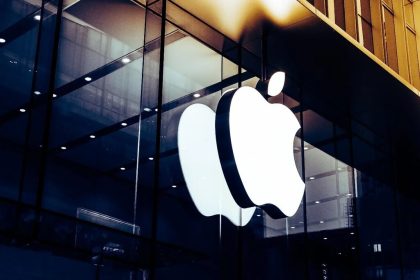The release of 64-bit chips was a big and important event in the world of technology, and increasing the number of bits before this event was also a hot topic, but after two decades, 128-bit chips have not yet been made. In this article, we will examine the cause of this issue and also predict the future of processors.
32-bit processors vs. 64-bit processors
32-bit chips can process 32 bits of data simultaneously, and 64-bit chips are, as the name suggests, 64 bits. Therefore, 64-bit chips have better and faster performance. Many modern computers and mobile phones use 64-bit chips, but some older devices still use 32-bit processors, and this is the main reason for the existence of 32-bit versions of operating systems.
However, Windows 11 does not support 32-bit chips, and Apple has taken a similar approach in macOS, and now it seems that support for these chips will end soon on all platforms.
Bit size and RAM
32-bit processors are designed to process 32-bit packets of data, which means accessing 4,294,967,296 different and specific sections of memory. However, the actual amount of usable memory on 32-bit systems is usually less than 4GB because some of the memory space is set aside for other components such as the graphics card. For example, if your graphics card has 512 MB of graphics memory, you will only have access to 3.5 GB of system RAM.
In general, 64-bit chips have access to more memory segments than 32-bit chips (18,446,744,073,709,551,616 to be exact). Theoretically, a 64-bit chip can access 16 exabytes of RAM, but in reality this number depends on factors such as the operating system and system hardware limitations. In general, modern computers and servers equipped with 64-bit chips support more RAM and some systems are even compatible with several gigabytes or terabytes.
Related posts:
What was the reason for making 64-bit processors?
To meet the growing need for more processing power, processor architectures have evolved from 32-bit to 64-bit, and 64-bit personal computers have been gradually introduced to the market since the early 2000s. However, 64-bit servers and workstations were also used in the 1990s. Finally, the increase in the number of chip cores led to the creation of more powerful RAMs.
The advantage of more bit size
A higher bit size has a direct impact on better processing of tasks that require high accuracy (such as scientific and economic calculations) and is also effective in the information security sector, because increasing the number of bits means that it becomes more difficult to crack the code. The higher bit size also allows chips to handle complex tasks and heavy data more easily, increasing overall system performance and efficiency. This issue also improves the compatibility of the computer with the software; A case that is of great importance in machine learning and high performance computing (HPC).
Related posts:
Do we need 128-bit processors?
Although the future of the technology world can never be accurately predicted, there are reasons that prove the need for 128-bit computers:
- Low efficiency: As the bit size of the processor increases, the progress of performance and ability of this part gradually decreases. For example, the rate of improvement of 128-bit processors compared to 64-bit ones will be much less than that of 16-bit chips compared to 8-bit chips.
- Alternative solutions: Solutions such as using multiple processors or special hardware can solve the need for a larger chip with a higher bit size.
- Physical limitations: It may not be possible to make 128-bit chips due to technical limitations.
- Cost and resources: Production and manufacturing of 128-bit processors may require costs and resources that make their mass production impossible.
Although the advantages of making 128-bit processors are not so great at the moment, new technologies may emerge in the future that will eventually lead to making these chips. Major advances in artificial intelligence, quantum computing, or other technologies could create the need for more powerful processors with larger bit sizes. The future of technology is always uncertain, and what seems irrelevant and impossible today may become a necessary issue in the future.
RCO NEWS














